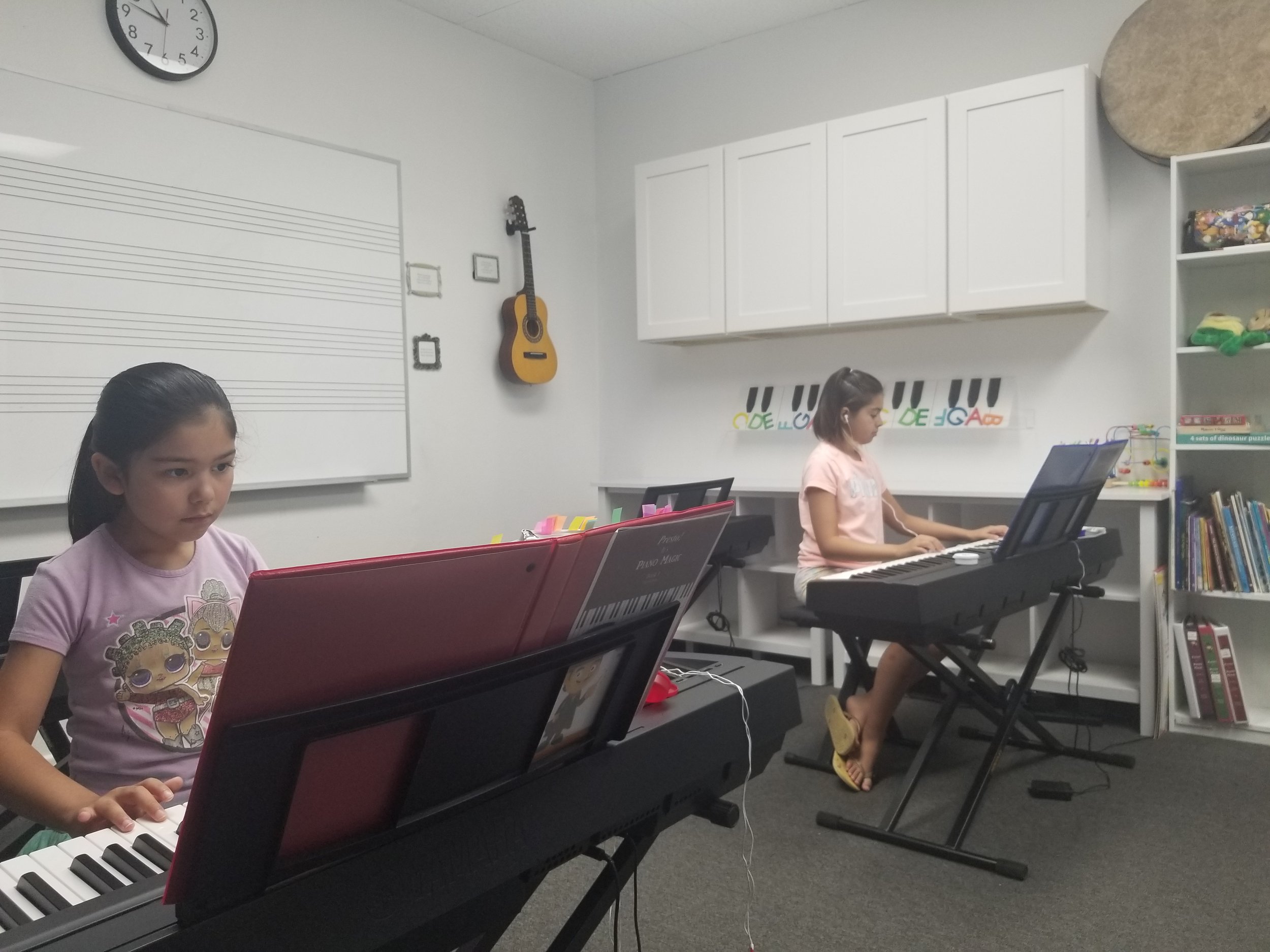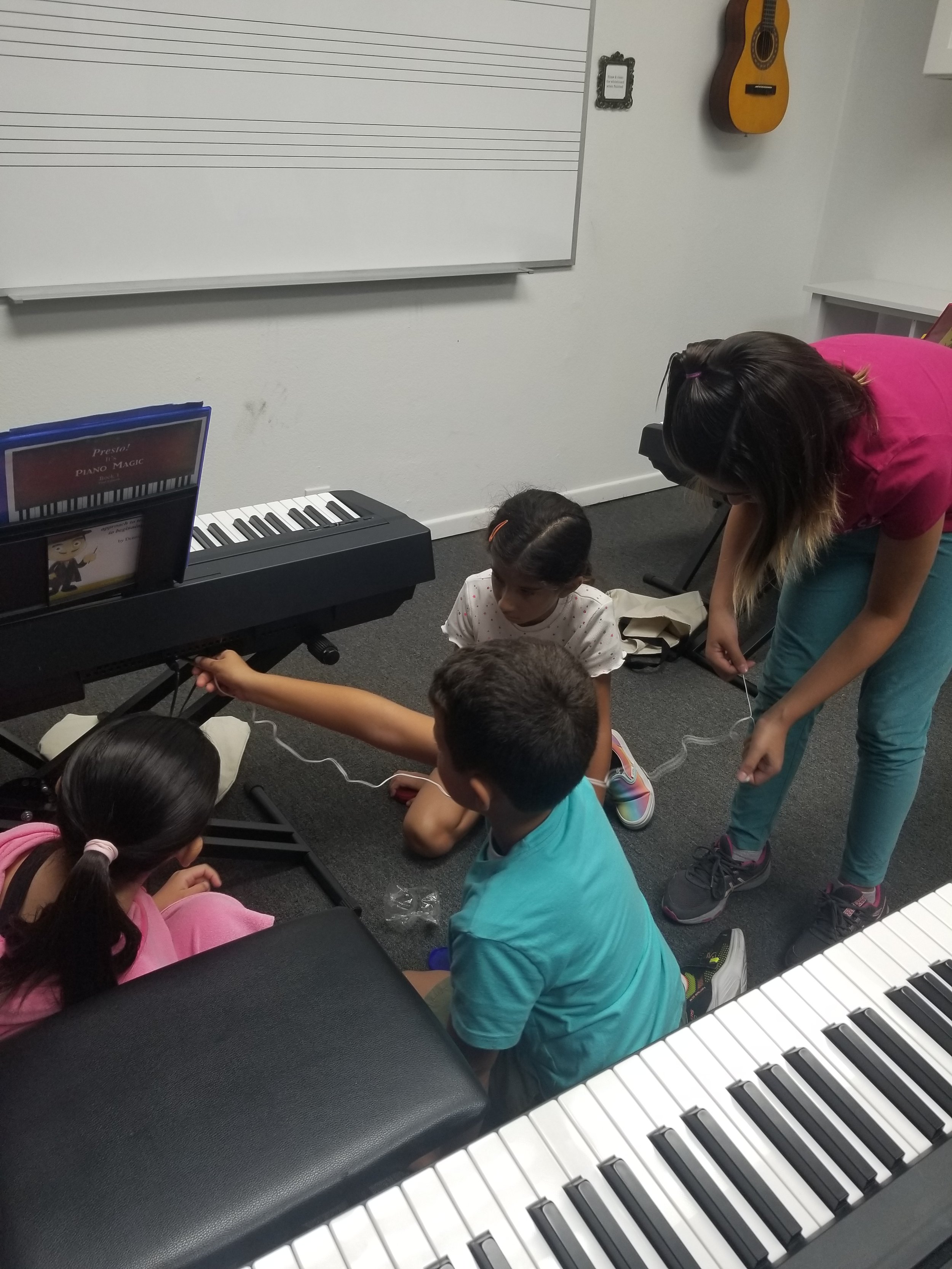
Small Group Music Lessons
Small group music lessons offer an affordable, community-driven way to learn that’s perfect for siblings, families, and students who thrive through shared joy, steady structure, and the inspiration of learning together.
Small Group Music Lessons
(Classroom Instruction, 2-4 Students)
There are many reasons why students and families prefer ensembles or small group music lessons. The three biggest advantages involve affordability, the pacing of instruction, and the social aspect of learning with others and interacting with peers.
Affordability - ensembles and small group music lessons cost less. There are some variables, but the average cost of ensembles and small group music lessons can be as much as 50% of the cost of individual private lessons.
Pacing of Instruction - ensembles and small group music lessons encourage students to keep on pace. Students in the ensemble or class move through the curriculum together, and, with guidance and encouragement from the teacher, create a learning environment that is supportive, nurturing, collaborative, and mutually rewarding. Students get very comfortable playing in front of others, and always have a small audience to practice performing for, which stimulates the development and improves progress.
Social Aspect - many students enjoy learning with others and interacting with peers. We strive to place students into appropriate age groupings, and in these learning environments, close bonds and lasting friendships often develop. Students have more opportunities to play duets and make music together as an ensemble, which can help with rhythm, blend, and teamwork, and better prepare them for school music such as band, choir, and orchestra.

Why Small Group Music Lessons Are a Smart, Supportive, and Joyful Way to Learn
Community Builds Confidence.
Small group lessons create a learning environment where students feel supported by peers — not lost in a crowd, but also not alone. For many children, especially those who feel nervous or shy in one-on-one settings, group learning offers a low-pressure, encouraging space to grow. Watching others make mistakes, improve, and celebrate progress helps normalize the learning process and builds real confidence.
Motivation Through Shared Joy.
Group lessons are inherently social, and that social energy fuels enthusiasm. Students often look forward to seeing their classmates, sharing music, and even helping each other. Healthy peer influence boosts motivation: kids tend to want to keep up with or impress their peers. This creates a fun, dynamic rhythm of progress.
Perfect for Siblings and Families.
Group lessons are a wonderful option for families — especially siblings who want to learn together. It can save time and streamline scheduling, while also strengthening the bond between siblings as they encourage and support one another musically. Some studios, including the Dennis Frayne Music Studios, even offer multi-age group classes or family-based ensembles to nurture this kind of connection.
Balanced Cost, Rich Value.
One of the most practical advantages of group lessons is affordability. They’re typically less expensive than private lessons, yet still offer structured, high-quality instruction. For families with more than one child or limited budgets, group learning makes music study more accessible without sacrificing educational value.
Timing That Works for Busy Lives.
Group classes often follow consistent weekly schedules, which helps families build music into their regular routine. Having a fixed class time simplifies planning, especially when juggling multiple kids, sports, or school activities. Group settings also encourage punctuality, preparedness, and a shared sense of responsibility.
The Right Fit for the Right Student.
Group lessons are especially effective for beginners, social learners, and students who thrive in collaborative environments. They’re also ideal for early childhood learners who benefit from movement, games, and musical play alongside others. Many students begin in groups and later transition into private lessons — or blend both for the best of both worlds.

